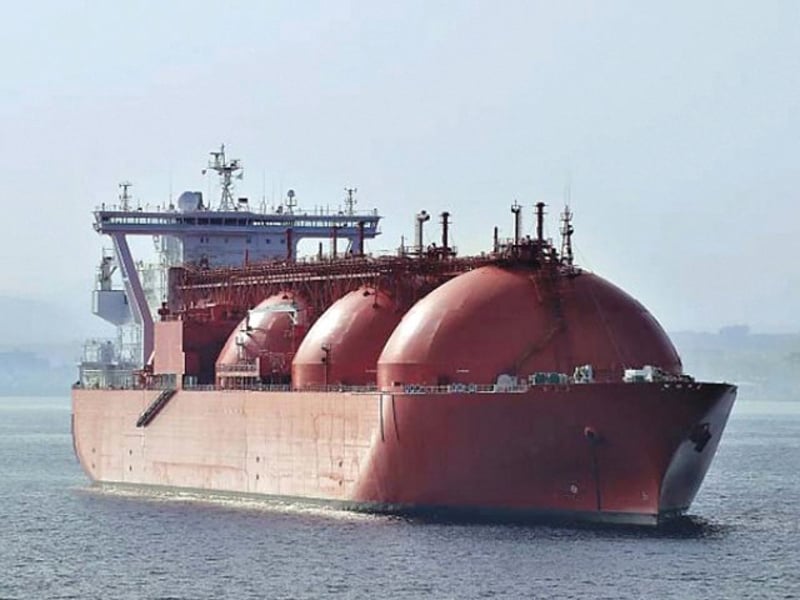
The Ministry of Petroleum and Natural Resources has forcefully argued that the country’s revenue will not take a hit if imported liquefied natural gas (LNG), some of which is planned to be allocated to compressed natural gas (CNG) stations, is exempted from taxes.
“Tax concessions will make the fuel affordable for CNG consumers and keep it cheaper than petrol,” an official quoted the ministry as telling the Economic Coordination Committee (ECC) of the cabinet. The committee will meet on Thursday to discuss the proposals pertaining to LNG imports.

The ministry came up with the argument after the Federal Board of Revenue (FBR) suggested that it would lose revenue if imported LNG was exempted from sales tax and gas infrastructure development cess (GIDC) to make it cheaper for the consumers and keep a 30% difference between prices of petrol and CNG.
At present, all bulk buyers of natural gas are paying Rs300 per million British thermal units (mmbtu) as GIDC and 17% sales tax.
“This plan, however, will promise round-the-clock CNG supply to the consumers as opposed to only 72 hours a month these days,” the petroleum ministry said.
If the plan gets the go-ahead, it will help divert 628 million cubic feet of natural gas per day (mmcfd) to power plants, leading to an increase in electricity production and reduced outages that have knocked 3% off economic growth every year.
“The country will, in fact, receive revenue after natural gas being consumed by the CNG industry is diverted to the power sector and other consumers,” the ministry argued.
Apart from this, it said, around $1.4 billion could be saved in oil imports every year by supplying LNG to the CNG filling stations and natural gas to power plants.
“The plan is designed to save the CNG industry, which has invested Rs450 billion and is on the brink of financial collapse, especially in Punjab, because of acute natural gas shortage,” the official said. At present, about 3.7 million vehicles are running on CNG in the country.
LNG for power plants
The ECC is also likely to take up the proposal of allocating LNG supplies to those power plants that have remained closed most of the time due to natural gas shortage.
These plants including Sapphire, Orient, Rosh, Halmore, Saif and Nandipur are run by the government only during periods of peak demand and are powered by diesel.
Under the LNG import plan, the government is planning to import 200 mmcfd in the first year and 400 mmcfd the next year by using an LNG terminal being set up by Elengy Terminal Pakistan Limited (ETPL), a subsidiary of Engro Corporation.
LPG price regulation
The ECC will also review a petroleum ministry’s proposal that calls for regulating liquefied petroleum gas (LPG) prices. In a new proposed policy, the government is considering setting the LPG price, which is currently in the range of Rs90 to Rs130 per kg, at Rs84.6 in a bid to provide relief to consumers, sources say. Marketing and distribution margins are expected to be fixed at Rs25 per kg.
According to the proposals, locally produced LPG will not be consumed in vehicles and industries. Accordingly, LPG filling stations as well as the industry will have to use imported LPG.
In the budget for 2014-15, the government has set Rs1 billion target for the collection of petroleum levy from LPG consumers.
The ministry points out that the deregulation policy has failed to achieve the intended objective of product sales at affordable prices. Though LPG is considered a poor man’s fuel, it is priced 20 times higher than natural gas for the domestic consumers.
Published in The Express Tribune, September 11th, 2014.
Like Business on Facebook, follow @TribuneBiz on Twitter to stay informed and join in the conversation.
COMMENTS (1)
Comments are moderated and generally will be posted if they are on-topic and not abusive.
For more information, please see our Comments FAQ



1732184775-0/BeFunky-collage-(80)1732184775-0-165x106.webp)













Dear ET,
Please do not mix an LPG tagline with an article on LNG. Since you have discussed about LPG at the end of the article, it would have been appropriate if you inserted the LPG Tagline in that section.
Moreover, the statement that CNG is available only 72 hours per month is incorrect. I guess you meant 72 hours per week.
Your editorial board needs to pull up their socks in order to avoid such mistakes in the future. ET is a very good paper and I trust you'll do better in the future to attract more readers. However, such mistakes tend to mislead the readers and will result in a reduction in the number of your readers.
Sincerely, Regular Reader